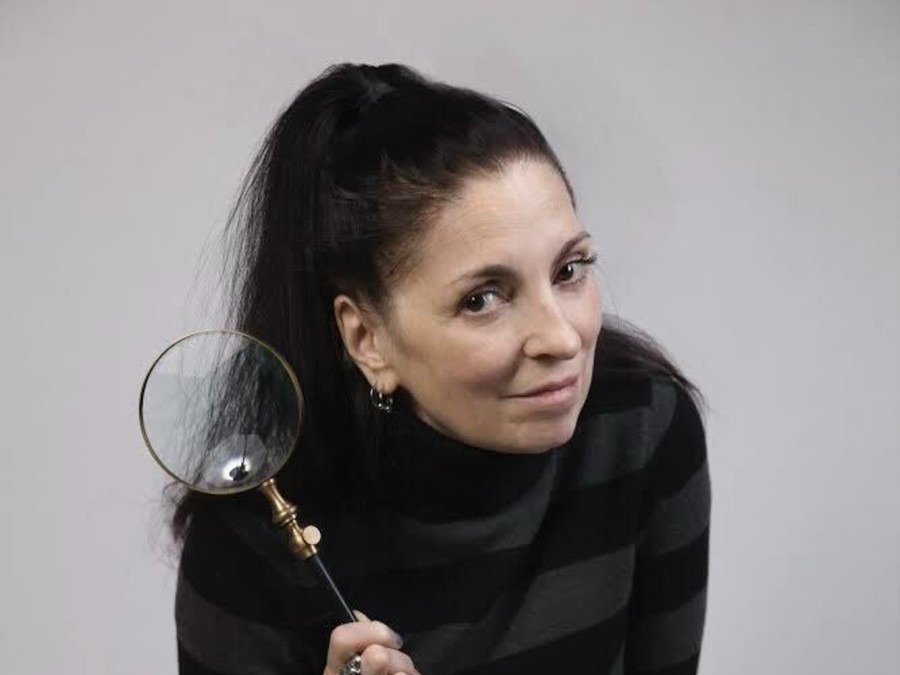Palmyra Delran: The trashy-pop queen of rock ‘n’ roll
The former Friggs frontwoman and current Underground Garage radio personality discusses her 30 years of experience in the music industry.
March 21, 2023
Palmyra Delran has seen nearly every corner of the music industry. As a former member of the Philadelphia rock bands The Friggs and Pink Slip Daddy and collaborating with LA supergroup Bubble Gun — not to mention a prolific solo career — it is undeniable that Delran has many talents. Most recently, the drummer, singer, songwriter and producer extraordinaire hosts her own radio show at the popular rock ‘n’ roll satellite station Little Steven’s Underground Garage.
Delran first came in contact with Steven Van Zandt’s Underground Garage in 2008, when her solo music was featured on the station’s playlist. Van Zandt was a fan of The Friggs, and added Delran’s EP “She Digs the Ride” to the playlist himself. Fans of the show voted her song, “Baby Should Have Known Better,” as the Coolest Song in the World for that year. Now, Delran hosts her own show on Underground Garage, which Sirius XM called “a reflection of her longstanding deviation to the trashy-pop side of rock and roll.” WSN spoke with Delran about her impressive life and longstanding dedication to rock ‘n’ roll.
WSN: What brought you to radio, specifically to Little Steven’s Underground Garage?
Delran: Steven. I wasn’t thinking of anything to do with radio except just listening to his station. And then, one day, he was just like, “Hey, Palmyra, you want to do a show?” I was like, “I’ve never thought of it.” No one thought I’d be any good at it or anything. I’m such a big fan and an avid listener — I just never thought of doing anything like that. He was like, “Yeah, come on, you can do it.” And I tried it, and I love it. I absolutely love it.
WSN: Can you walk me through how you plan your radio shows? How do you choose your music and make the show your own?
Delran: I work really closely with Dennis Mortensen. He’s our everything guy at the Underground Garage and he helps. We put a setlist together, together. Usually I pick a couple of segments, the trash-pop treasures, where I go back at least 10 years and find stuff that I believe should have been hits but never were. I like to load my shows up with those kinds of things. And, of course, we keep a lot of the classic stuff — Beatles and Stones, The Who, British Invasion bands, girl groups. A lot of punk rock, because I love it. I like a lot of northern soul too, so I pack my shows with that kind of stuff. Each DJ station has their own specialty.
It’s amazing that they really give us a lot of freedom to put our own tastes in our own shows, because it’s not commercial but it is a radio station that people want to listen to. You get to play stuff that people know, along with the stuff that you want to turn them on to. It’s creating that balance, which is really fun.
WSN: Your radio show is dedicated to the trashy-pop side of rock ‘n’ roll. What is your personal definition of trashy pop? Did the genre influence your position as a woman trailblazer in the genre?
Delran: I had an all-girl band called The Friggs. Our music always kind of stemmed from garage and pop music, because we really liked melody, harmony and really catchy songs. We really concentrated on that. And then in the ’90s we were kind of in that scene. There were a lot of bands like The Muffs and The Woggles and all kinds of really cool bands like that, touring around the same time.
What really became clear to me was that there should be another genre type. It was all grunge or blues or punk rock and I just felt like “Ah, there needs to be something else that bands like us can fit into” because it was still a little poppier and catchy but it was still a little trashy too.
That was my personal motivation, because I wanted to create a new genre where a lot of bands could fit in, and we could just be inclusive in our budding rock ‘n’ roll [days]. As time goes on, I think there’re a lot more bands that are doing that kind of thing without labeling that. But if you look at our playlists, there’s a lot of really cool bands with chicks in them that just get it. So that’s been really cool to watch and to spin.
WSN: Would you have any advice for women dealing with pushback when starting out in a male -dominated industry like the rock ‘n’ roll music industry?
Delran: Just keep going, and stay true to yourself — that’s the main thing. You really got to stay true to yourself. You’re gonna run across a lot — might be a producer or manager — or some business person that sees you and recognizes the talent, maybe wants to change you a little bit to fit into whatever format they think you should be in. You should stay really committed to who you are as an artist, because that really will prevail in the end.
Sometimes you might need some guidance. The other thing that I’ve learned throughout my years of being in this business is you should listen to people who know more than you. You should concentrate on figuring out if this is somebody that knows more than me, can help me, but still let me be myself or is this just somebody with ulterior motives, which happens frequently in this business, too. It’s a really hard thing to balance, but just pay attention. Do your thing. If something doesn’t feel right to you, it’s probably not.
WSN: How do you personally deal with discouraging or sexist behavior?
Delran: I’ve been pretty lucky. When my band The Friggs was touring we did hit a lot of those things. Guys would be like, “Oh do you want me to help you tune your guitars?” Like, no, I got it. But if you want to help me load my amp at the end of the night, meet me at the back door.
I feel like in the ’90s things started changing for women. And, you look at bands like L7 and the Lunachicks and all these bands. They didn’t need any help like that, you know. I’m hoping at least that that’s the case now, like, I feel like, I don’t really need to deal with that, because people sort of leave me alone that way. Especially in the Underground Garage, like there is no difference here musically, or, what they think of our DJs. They allow us to play any type of music we want. It’s a pretty free environment. That’s why I’m there.
I just hope that people can really maintain their individuality and know that they are strong because sometimes people do need the help. And there might be people out there that can help them. It’s hard to recognize someone scamming me or someone really genuinely trying to help me. So that’s something to just be aware of — take the help when you could use it — and if it’s good advice and you feel good about it. I go a lot with the feelings. Which might not be so smart, “but who knows?”
WSN: How do you think your songwriting and producing process has changed over the years?
Delran: Hopefully, I’ve grown. As far as songwriting, I just want to keep getting better. If I think I nailed something, OK, that’s fantastic, but I have to make it better next time. You can never rest on your laurels. You never can do that, because once you think you’ve arrived, that’s when you’re in the coffin. As far as production work, I’ve always stolen my production ideas from producers I admire. I’ve stolen so much from Lesley Gore records, or Neil Diamond records. And I’ve hidden it. Nobody can be like, “Oh you pinched that from Neil Diamond.” I just get a laugh out of it. But now I can really hear stuff quickly. Maybe that comes with age and doing it for so long. Maybe that’s what it is. I feel like I’m pretty quick with coming up with the right result. So I feel lucky in that way. You always have to grow, you always have to make the next thing better. I can’t say that I’ve done it, but that’s what I try for.
Contact Julia Diorio at [email protected].
























































































































































